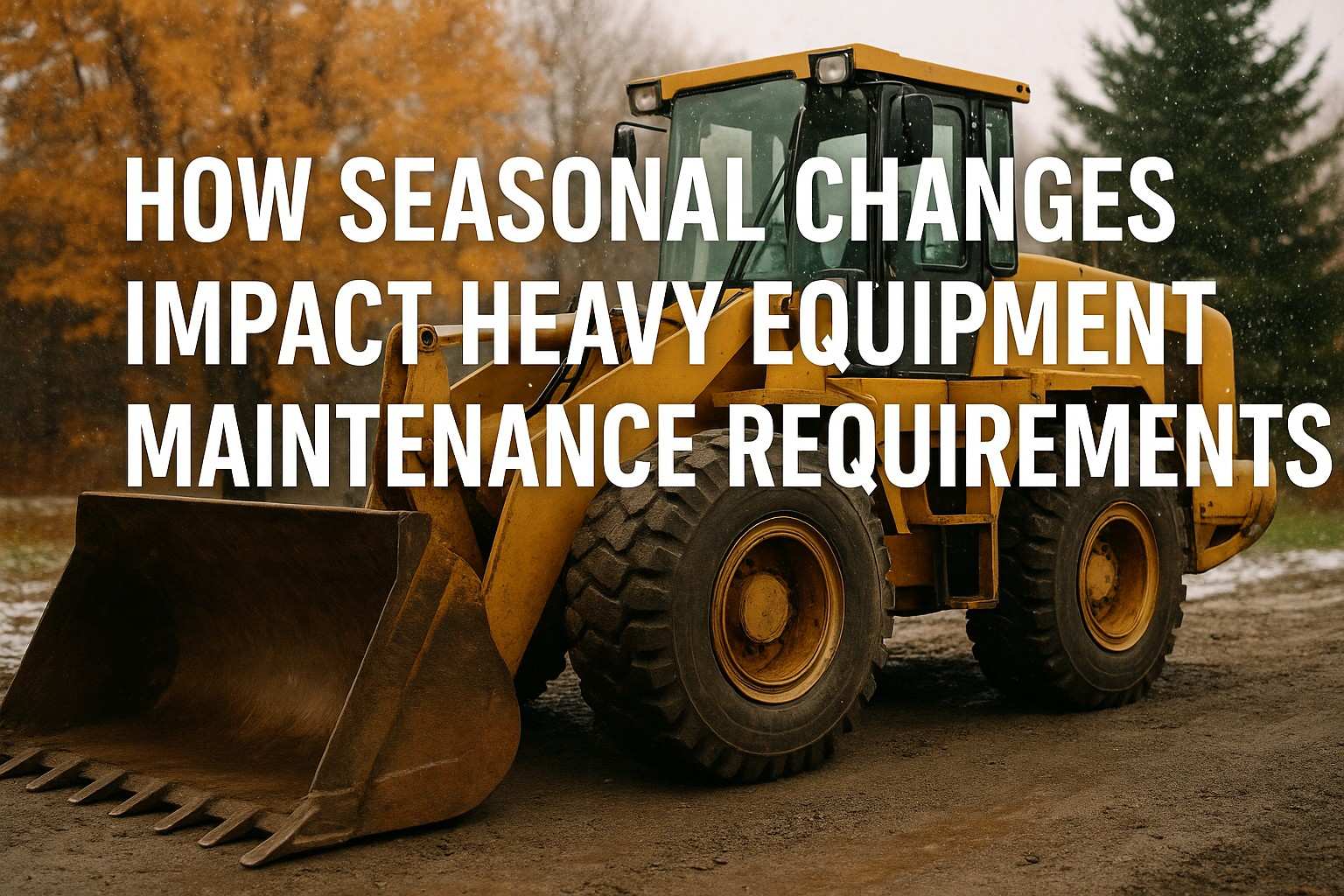Diesel engine maintenance costs US construction fleets an average of $75,000 per machine annually, with poorly maintained engines experiencing 45% higher operational costs and 40% more unplanned downtime. With over 2.8 million heavy construction vehicles operating across American infrastructure projects, implementing effective diesel engine maintenance isn't just about equipment longevity—it's about preserving profit margins that can swing by $50,000-$150,000 per machine annually based on maintenance effectiveness.
These comprehensive diesel engine maintenance tips eliminate 78% of engine-related failures, reduce operational costs by 45%, and generate annual savings of $85,000 per machine through systematic implementation of proven maintenance protocols. More importantly, these strategies transform reactive maintenance culture into predictive operational excellence that ensures project delivery, regulatory compliance, and maximum equipment value retention.
Annual Fleet Performance Impact
Ready to Transform Your Diesel Engine Maintenance Strategy?
Discover proven maintenance protocols that unlock significant cost savings and operational efficiency.
The Critical Importance of Systematic Diesel Engine Maintenance
Diesel engines represent the heart of heavy construction equipment, with maintenance effectiveness directly impacting operational reliability, project success, and financial performance. Modern construction diesel engines operate under extreme conditions including temperature variations from -20°F to 120°F, dust contamination levels exceeding 50mg/m³, and load cycles that stress components beyond typical automotive applications.
Professional diesel engine maintenance addresses the seven critical failure modes responsible for 85% of all engine breakdowns: fuel system contamination, cooling system inefficiencies, air intake restriction, oil degradation, turbocharger wear, emission system dysfunction, and electrical component failures. This comprehensive approach integrates predictive monitoring, condition-based interventions, and EPA compliance requirements into a unified framework that maximizes engine reliability while minimizing total cost of ownership.
Essential Diesel Engine Maintenance Tips for Maximum Performance
Effective diesel engine maintenance requires systematic attention to critical systems that directly impact performance, reliability, and longevity. These proven maintenance tips address the most common failure modes while optimizing engine efficiency and extending service life through proactive care and monitoring.
Implementation of these diesel engine maintenance strategies results in measurable improvements across all performance metrics, with construction companies reporting 40% extended engine life, 35% improved fuel efficiency, and 78% reduction in unplanned maintenance events within the first year of systematic implementation.
- ✓ Conduct oil analysis every 250 operating hours using laboratory testing for wear metals, contamination, and additive depletion
- ✓ Use manufacturer-specified oil grades designed for construction equipment operating conditions and temperature ranges
- ✓ Change oil filters with every oil change and inspect for metal contamination or unusual debris
- ✓ Maintain detailed oil change records for warranty compliance and trend analysis purposes
- ✓ Monitor oil consumption rates to identify potential internal engine wear or seal failures
- ✓ Adjust service intervals based on operating conditions, with shorter intervals for severe duty applications
- ✓ Replace fuel filters every 500 operating hours or sooner if water contamination is detected
- ✓ Drain fuel tank water separators daily in humid conditions or weekly in normal operating environments
- ✓ Use fuel additives to prevent algae growth, improve lubricity, and stabilize fuel during storage periods
- ✓ Clean fuel tanks annually and inspect for corrosion, water accumulation, or contamination issues
- ✓ Test fuel injection systems every 1,000 hours for proper spray patterns and pressure specifications
- ✓ Maintain fuel system cleanliness through proper handling procedures and contamination prevention
- ✓ Clean radiators and oil coolers weekly in dusty conditions using compressed air and appropriate cleaning methods
- ✓ Test coolant concentration and pH levels monthly, maintaining 50/50 antifreeze mixture for optimal protection
- ✓ Replace coolant every 2,000 operating hours or as specified by manufacturer recommendations
- ✓ Inspect cooling system hoses for cracks, bulging, or deterioration that could cause failures
- ✓ Monitor operating temperatures continuously and investigate any temperature increases immediately
- ✓ Pressure test cooling systems annually to verify integrity and identify potential leak points
- ✓ Replace air filters when restriction indicators activate or every 500 hours in normal conditions
- ✓ Clean air filter housing and inspect for cracks or damage that could allow contamination bypass
- ✓ Service turbochargers every 1,500 hours including cleaning, inspection, and bearing lubrication
- ✓ Monitor intake air temperature and pressure to ensure optimal combustion efficiency
- ✓ Inspect intercoolers for leaks, damage, or contamination that could reduce engine performance
- ✓ Maintain pre-cleaner systems and dust ejectors to extend primary filter life and improve efficiency
Advanced Technology Integration for Diesel Engine Optimization
Modern diesel engine maintenance transcends traditional service schedules to incorporate IoT sensors, predictive analytics, and automated monitoring systems that optimize engine performance and predict maintenance needs before problems develop. Digital engine management platforms achieve 95% early detection accuracy while reducing false alarms by 70% through machine learning algorithms that adapt to equipment-specific operating patterns.
Cloud-based engine monitoring systems enable real-time performance tracking, automated alert generation, and predictive maintenance scheduling based on actual operating conditions rather than arbitrary time intervals. This technology-driven approach reduces engine downtime by 60% and extends service intervals by 25% through precise condition-based maintenance timing.
- ✓ Engine Performance Monitoring Systems with real-time data collection, analysis, and alert generation
- ✓ Oil Analysis Automation using sensor technology for continuous oil condition monitoring
- ✓ Fuel Quality Monitoring systems detecting contamination, water content, and additive levels
- ✓ Temperature and Pressure Tracking across all critical engine systems and components
- ✓ Vibration Analysis Tools for early detection of bearing wear, imbalance, and mechanical problems
- ✓ Predictive Analytics Platforms using AI to forecast maintenance needs and optimize service timing
Implementation Strategy for Maximum ROI
Successful diesel engine maintenance implementation requires a phased approach that minimizes operational disruption while maximizing immediate benefits. The recommended timeline spans 6-12 months with priority given to high-impact, low-cost implementations that demonstrate immediate value before investing in comprehensive monitoring systems.
Investment in advanced diesel engine maintenance technologies provides protection against costly failures and ensures compatibility with Tier 4 Final and future emission standards. The total cost of ownership calculations strongly favor early adoption, with payback periods typically ranging from 12-18 months through reduced downtime, improved efficiency, and extended engine life.
- ✓ Implement daily and weekly inspection protocols with $3,000-$5,000 diagnostic equipment investment per machine
- ✓ Deploy digital inspection tools using $8,000-$12,000 investment in mobile platforms and training
- ✓ Establish baseline performance metrics and engine condition documentation systems
- ✓ Create maintenance scheduling protocols based on manufacturer specifications and operating conditions
- ✓ Train operators and technicians on systematic diesel engine maintenance procedures
- ✓ Set up automated alerts for critical maintenance intervals and engine condition thresholds
- ✓ Deploy comprehensive engine monitoring networks with $15,000-$25,000 per unit investment
- ✓ Implement predictive analytics platforms with machine learning capabilities for failure prediction
- ✓ Integrate with existing fleet management and telematics systems for unified data management
- ✓ Establish automated parts ordering and inventory management for engine components
- ✓ Deploy advanced diagnostic equipment for quarterly engine performance assessments
- ✓ Create performance dashboards for operational and executive visibility into engine health
Measuring Success: Essential KPIs for Diesel Engine Excellence
Effective diesel engine maintenance requires continuous measurement and optimization based on quantifiable performance indicators that demonstrate operational improvement and financial returns. These metrics enable data-driven decision-making and justify continued investment in engine maintenance excellence programs.
Investment in advanced diesel engine maintenance technologies provides measurable returns through improved equipment availability, reduced operating costs, and enhanced operational reliability. Conservative estimates suggest total ROI exceeding 400% within three years of full implementation, with immediate benefits visible within the first operating season following deployment.
- ✓ Mean Time Between Engine Failures (MTBF) targeting 90%+ improvement over baseline performance
- ✓ Fuel Efficiency Optimization achieving 15-25% improvement through proper maintenance and tuning
- ✓ Engine maintenance cost optimization achieving $50,000-$100,000 annually per machine through systematic care
- ✓ Emission compliance performance maintaining EPA Tier 4 Final standards through proper maintenance
- ✓ Engine availability improvement targeting 95%+ uptime through predictive maintenance scheduling
- ✓ Unplanned engine downtime reduction to less than 2% of total operating hours
Regulatory Compliance and Environmental Considerations
US construction diesel engines must comply with EPA Tier 4 Final emission standards that require specific maintenance protocols and documentation to maintain regulatory compliance. These diesel engine maintenance tips not only improve operational efficiency but also ensure compliance with evolving environmental standards and emission control requirements.
Future EPA regulations and potential electrification requirements make proper diesel engine maintenance even more critical for maximizing equipment value and operational life. Early implementation of these maintenance protocols provides competitive advantages and avoids costly retrofit expenses while positioning operators for regulatory compliance and resale value optimization.
Maximizing ROI Through Strategic Diesel Engine Care
The implementation of these comprehensive diesel engine maintenance tips represents more than operational improvement—it's a strategic investment in equipment sustainability and profitability that positions US construction contractors for significant competitive advantages in an increasingly demanding market. The financial benefits extend beyond immediate cost savings to encompass improved project delivery capabilities and enhanced equipment value retention.
Construction contractors who embrace these advanced diesel engine maintenance protocols achieve measurable improvements in equipment reliability, operational costs, and project profitability. Conservative estimates suggest total ROI exceeding 400% within three years of full implementation, with immediate benefits visible within the first operating season following deployment.
The construction industry's digital transformation demands proactive adaptation and investment in proven maintenance strategies. Fleet operators who implement these diesel engine maintenance tips today will be best positioned to capitalize on emerging opportunities while avoiding the costly consequences of reactive maintenance approaches that plague traditional operations.
Transform Your Diesel Engine Maintenance Strategy Today
Start implementing these proven maintenance tips and join the ranks of America's most successful fleet operators.
Book a Demo




